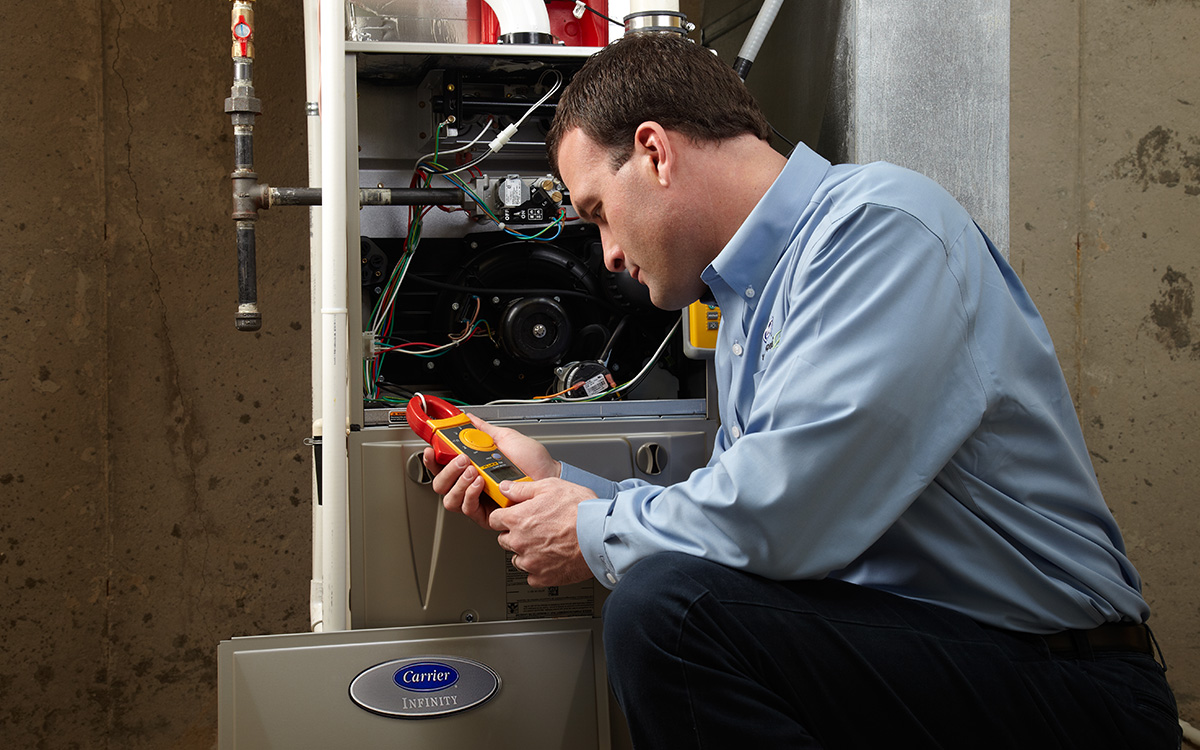
An HVAC system works day and night to keep your home as comfortable as possible, be it during the scorching summer days or the chilly winter nights.
But like everything in your home, you need to take good care of it if you want it to last.
A well-maintained HVAC system can last for over a decade, but if you don’t take good care of it, chances are that the unit might break down eventually. Replacing a broken HVAC system can be very expensive, some can cost up to $15,000 to replace.
While you should leave the more complicated stuff to the professionals, there are a few small things that you can do to keep your system in excellent condition. Here are some HVAC maintenance procedures you need to consider:
1. Do a Visual Inspection
First and foremost, you should carry out a simple visual inspection to check for any potential problems with your HVAC system. Here are a few things to check up on:
- See if the condensation line is draining water out of your HVAC system properly. Keep an eye out for puddles and other signs of water leaks
- Make sure that the filter access is properly closed. If the access doors aren’t closing properly, you should call a professional to fix it
- Check all the registers, which are the components of the HVAC system that directs the airflow, for signs of mold and mildew
However, consider calling a professional for a more thorough inspection.
2. Keep an Eye on Your Electricity Bills
A suspiciously high electricity bill can be a major sign that something’s wrong with your HVAC system.
Faulty HVAC systems usually need to work harder to cool or warm your home properly and this means that it needs to use more energy, which can lead to high electricity bills.
Clogged filters and low refrigerant levels are some of the most common causes of high electricity bills.
3. Clean the Filters
An HVAC system’s filters can get very dirty after many months of use. They can become clogged by hair, dust, and other kinds of debris.
To clean the filter, switch off the system and then find an access point that lets you remove the HVAC system’s filters safely. Once the filters are removed, use a vacuum to remove any large debris.
Now you need to remove the finer debris and this can be done by mixing equal parts vinegar and hot water in a bucket. Then place the filters in the bucket and let them sit for at least an hour.
Afterwards, remove the filter from the bucket and rinse it thoroughly with clean water. If the filters are too big, try using a low-pressure garden hose instead. If the filters are damaged in any way, you should consider replacing them.
4. Cover Up Any Leaks
Look for leaks around your HVAC system and cover them up using weatherstripping, duct tape, or caulk. Leaks around your HVAC system can prevent your unit from heating and cooling your home properly and could sometimes lead to higher-than-average electricity bills.
Also, if you notice the refrigerant line leaking, don’t attempt to patch it up yourself—this liquid is very toxic. Call a professional instead.
5. Change Your Thermostat’s Batteries
Most thermostats are connected directly to your home’s electrical infrastructure, but home HVAC systems may use battery-powered ones.
Low battery levels could lead to incorrect readings and the temperature settings may not be accurate. So make sure to replace the batteries every few months.
6. Install a Carbon Monoxide Detector
If your HVAC system uses combustion to heat your home, you should install a carbon monoxide detector. Ideally, your HVAC system shouldn’t produce any carbon monoxide if it can burn fuel properly.
Carbon monoxide is a harmful gas that’s almost impossible to detect and it causes about 400 deaths in the US every year. So by installing a carbon monoxide detector, you can find out if there are problems with your HVAC furnace’s operation.
In addition, these detectors only last for about 7 years, so make sure to replace them before they wear out.
7. Get Rid of Clutter Around the Unit
If there is any clutter around your HVAC system’s indoor unit, make sure to clean it all up. This is because if there’s too much stuff near your HVAC system, there will be more surfaces for dust to accumulate and this can clog up the filter quickly.
And if there are objects cluttered near the vents, they could impact the air circulation, preventing your HVAC from doing its job properly.
8. Schedule Routine Maintenance
There may be some problems with your HVAC system that are hard to detect let alone fix on your own. With this in mind, you should consider scheduling routine maintenance every six months to ensure that your HVAC system is in excellent working condition.
Frequently Asked Questions
Below are some commonly asked questions to consider:
1. How often should I change my HVAC filters?
Filters should be checked monthly and replaced every 1-3 months, depending on usage and the type of filter.
2. What is included in a professional HVAC maintenance service?
A professional service typically includes inspecting and cleaning coils, checking refrigerant levels, tightening electrical connections, and ensuring all components are working properly.
3. How often should I schedule HVAC maintenance?
It’s recommended to have your HVAC system professionally inspected and serviced twice a year, typically in the spring and fall.
Don’t just rely on simple HVAC maintenance procedures
These simple HVAC maintenance procedures can help you keep your unit in good condition, but a lot more goes into taking care of an HVAC system. You’ll want to call a professional HVAC company to provide you with the right HVAC maintenance services to find potential problems with your unit and fix them immediately.

